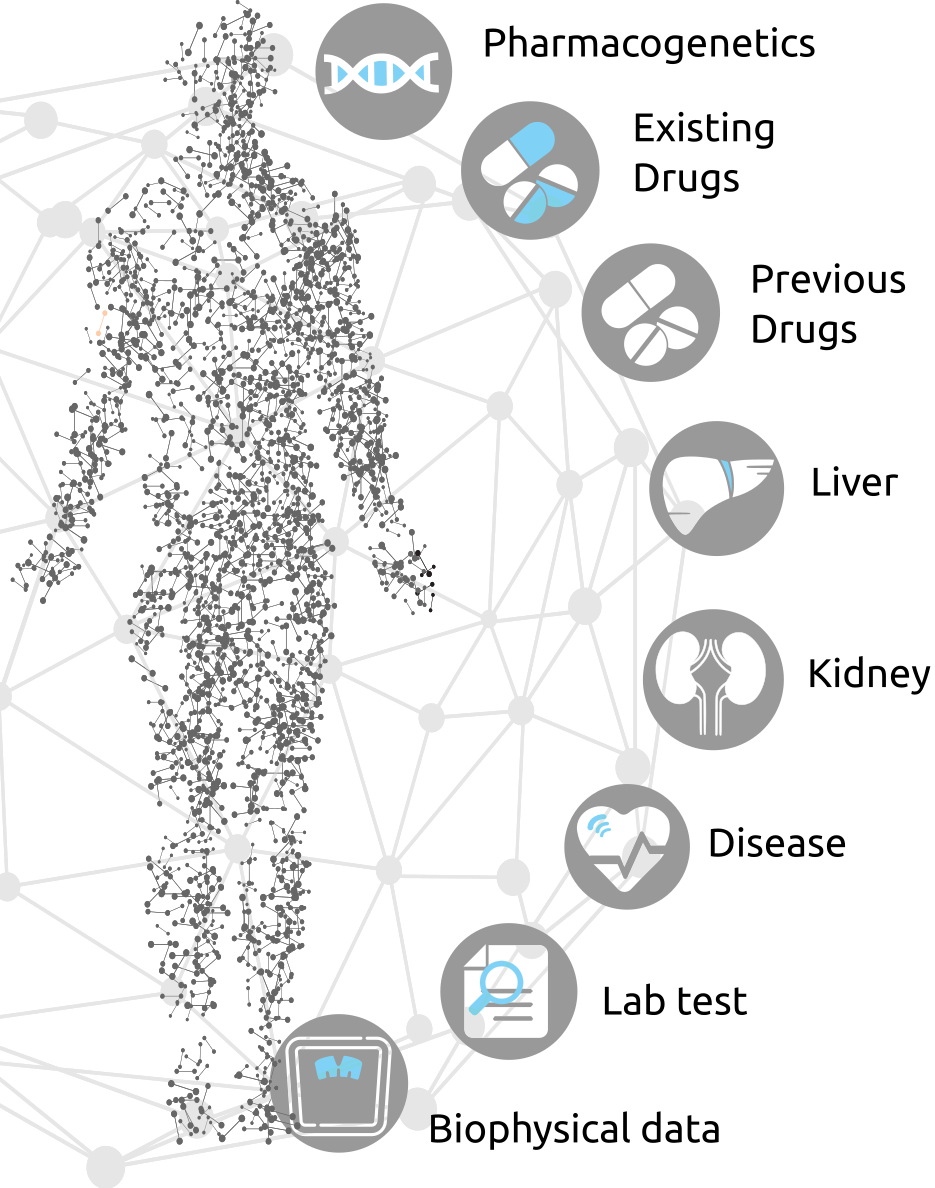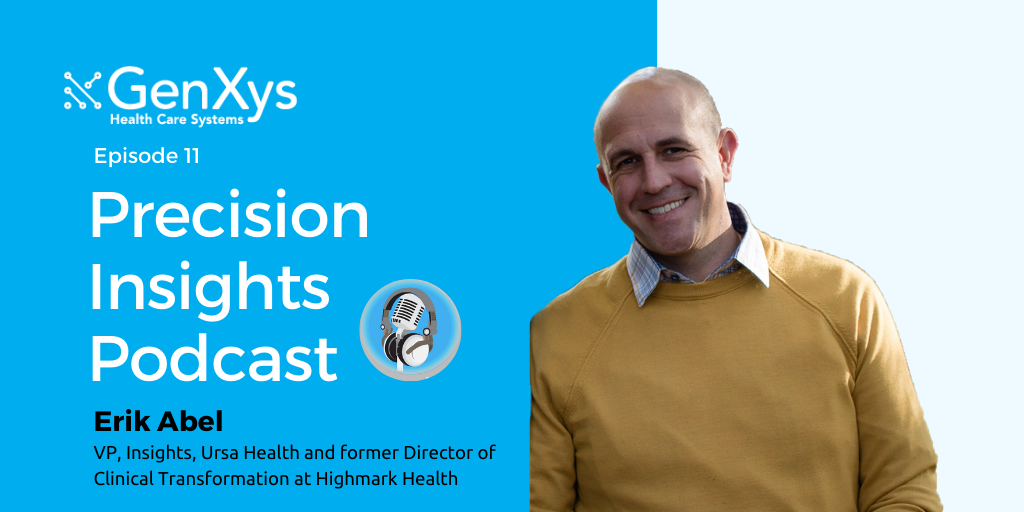29 Jan The Benefits of A Well-Designed Clinical Decision Support System: Making Information Work For You [Podcast]

We spoke to Erik Abel, former Director of Clinical Transformation, Highmark Health about his experiences in making system-level changes in healthcare and how well-designed clinical decision support systems (CDSS) can fit into that change. He started out in pharmacy as a specialist in cardiac surgery and mechanical circulatory support. At the Ohio State University medical center, he worked on some of their first efforts into alternative payment models. They realized that technology was a key component for driving the changes that they wanted to make.
Here are some of the highlights from our discussion. Listen to the whole episode here:
“I went into clinical care to make things better than they were when I came.”
Reimbursement and other challenges
Many of the current approaches to making changes in health systems come down to changes in reimbursement. However, according to Erik, system change is not purely driven through new payment models. Clinicians are not fundamentally motivated by reimbursement, and there are many models, most of which are quite complicated. Physicians cannot reasonably be expected to completely immerse themselves in the intricacies of each model they might encounter. System-level solutions need to be both operationally viable and resonant across the population.
Clinical decision support systems (CDSS) can function as one of these system-level solutions when they meet the above criteria. Erik has considerable experience in implementing CDSS in health systems to enact change. We are happy to present some of the learnings that he has shared in this post.
Working with Physicians to design CDSS

In order for CDSS to really align with physician workflows, we need to engage clinicians in the technology design. Any clinical decision support system should start with digitizing the work that physicians already do. Data literacy and understanding the foundations of how the data is entered can help clinicians use clinical decision support systems more easily. To create trust in the solution, we have to make sure there’s no implicit bias that has come out in the development of those clinical decision support systems and help the physicians understand that the data reflects their decisions and behavior.
In general, clinicians don’t want more alerts. To manage the number of alerts in a system when trying to put in new alerts, you need to make sure there’s no overlap with existing alerts and find any opportunities to take unnecessary alerts out. Alert efficiency is the phrase to follow.
It’s not only the parts of medicine that are already routine that can be supported by CDSS, but also fields that are still growing, such as personalized medicine.
Personalized medicine and its future

Personalized medicine is about whether or not physicians truly have a good sense of what a patient’s truest north medication list is. This is informed by patient history and by a lot of the claims or dispensing history that come into the EHR. There is an opportunity for deprescribing when ensuring that the information has come in and reconciling what a patient is or isn’t taking and if they are taking it appropriately. On top of that, the truest north medication list has to account for changes that have happened in that patient, which includes the liver or kidney function, bleeding history, social determinants of health, and also pharmacogenomics. Ideally, that list is used with the newer opportunities that will have greater market adoption, such as the real-time prescription benefit check.
The future of personalized medicine will revolve around how we account for those data enrichment opportunities to do things like reconcile formulary preferences with personalized medicine. There is also more work to be done around pharmacists as providers. This requires building up a new way to support business models that can drive patient outcomes where a pharmacist can be reimbursed for those services.
(Related Post: The Pharmacist’s Role in Implementing Pharmacogenomics [Podcast])
Conclusion
“We’re approaching a time of interoperability, where technology will help us cut through some of those barriers and meet the clinicians where they are. Hopefully, it will also help the respective payer systems come together to forge ahead to drive patient outcomes.”
We, too, are confident in the ability of technology to help make big and lasting changes in health care. One of the silver linings of COVID-19 is that it has accelerated the adoption of health technologies on all sides of healthcare: the givers, the receivers, and the payers. All of them have had to embrace the system-level solutions that Eric referred to in order to be both operationally viable and resonant to the user population. There is lots of scope for further advancement and, as Eric highlighted, we are seeing this already through digital automation and genetics built into Clinical Decision Support Software.
About Precision Insights Podcast
The Precision Insights podcast is a podcast series consisting of inspiring conversations around precision medicine with industry thought leaders and innovators. Every two months (and sometimes more), we share the most cutting-edge technologies, processes, and initiatives in precision medicine. If you’re a patient, healthcare provider, healthcare executive, employer, or someone simply interested in precision healthcare, you’re sure to find something useful in each episode. We hope that you’ll join our listeners and start taking control of your health, or implement precision health into your workplace/health system as a result!
The Precision Insights Podcast is proudly made by the GenXys team. Feel free to get in touch with us, we would love to hear your feedback, ideas, or thoughts.




Sorry, the comment form is closed at this time.